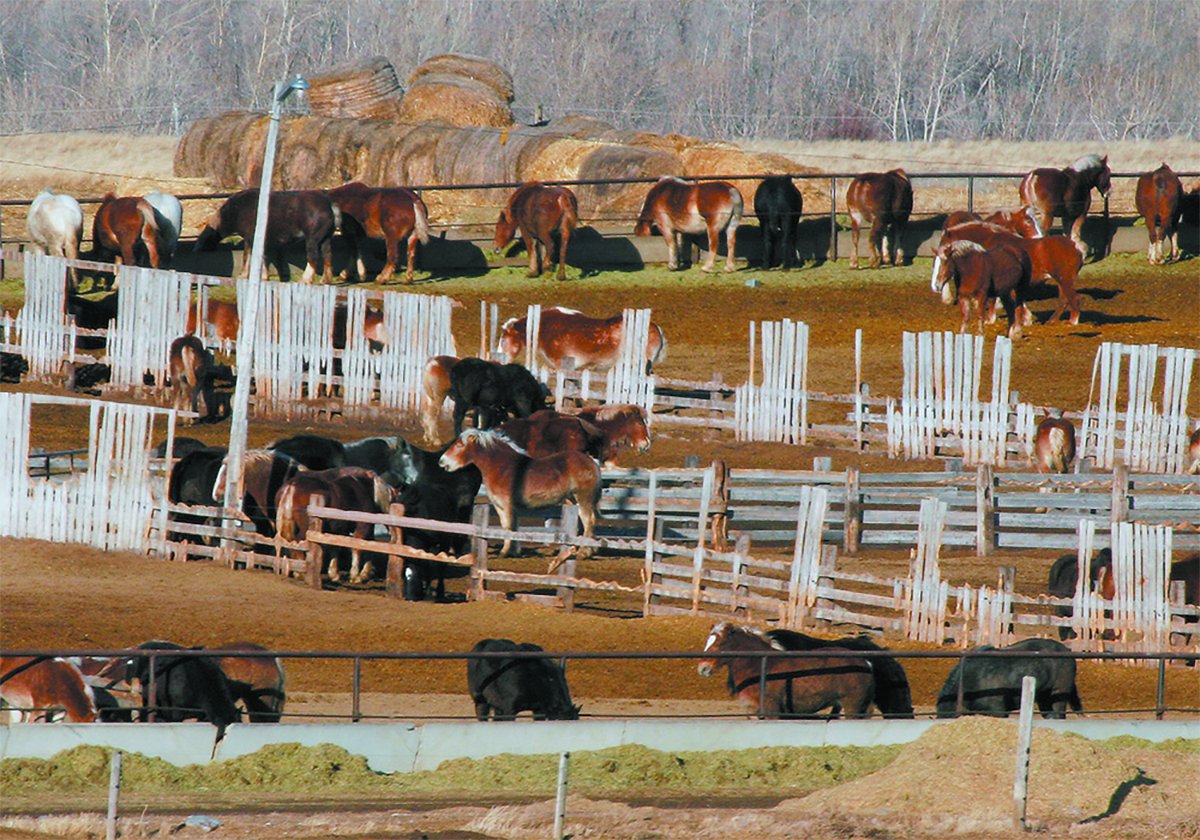BANFF, Alta. – There is no such thing as an overnight success on the
value-added stage.
Developments are under way in Saskatchewan and Alberta, but most need
another five years of nurturing before they reach the marketplace.
“I would have expected more from Alberta, but that said, we’re seeing
more deals than we expected and the quality of those deals are
outstanding,” said Armand Lavoie of the Foragen venture capital
investment group based in Guelph, Ont.
Read Also

Canada’s slaughter horse industry lacks transparency
The lack of clear reporting and public access to data keeps the industry largely hidden, leaving questions about humane treatment and traceability unanswered.
Foragen was created by Royal Bank Financial Group and the governments
of Saskatchewan and Quebec.
“It takes a long time to get the technology to a certain stage,” he
said in an interview at the Alberta Barley Commission annual meeting in
Banff.
Foragen finances technical projects where basic commodities like canola
or grain are converted into such products as cosmetics or those with a
human or animal health application.
The company has $42 million at its disposal, with a maximum investment
per project of $2.5 million for a five- to seven-year period.
Part of the challenge in developing value-added products is showing
producers the potential of new uses for traditional commodities.
“Producers are so used to thinking about the cost of production and
financing hard assets. I tell people to move away from that,” he said.
There are few success stories of producer-based projects in the food
processing area because it is difficult to compete against major
corporations. Farmers cannot raise the funds or produce a product that
can usurp a recognized brand in the marketplace.
Foragen reviews numerous proposals each year. Most are related to
technology, such as a new animal vaccine or a gene for a grain that
could benefit human health. Other areas of interest are finding
replacements for meat and bone meal for livestock feed or ways to
control dangerous forms of E. coli bacteria.
“We are seeing a lot of technologies, we don’t even know if they work,”
Lavoie said.
“We might spend $1 million to even find out if we can make it work.”
One project moving into production with investment from Foragen is the
development of canola meal for fish food. A high protein product, the
meal is suited for feed for the aquaculture industry and grower diets
for piglets. It could bring premiums to producers for high protein
canola meal.
Finding financing is often the greatest challenge for new developments.
Loans require security and regular payments.
“Most important is the drain on capital. If you have to make monthly or
quarterly payments, you may have difficulty paying,” Lavoie said.
Young companies developing new technologies need investment.
Venture capitalists are more patient than lenders. However, they expect
to own a share of the company and have a place on the board of
directors to oversee the investment.
Often people with technical expertise lack management skills and the
business falls into trouble. New ventures often fail because of
inadequate funding, lack of management expertise and inability to
deliver on the proposed project.
Canada has several types of investment funds available for new
projects. One is institutional using union funds or large investment
banks looking for a good return on a five- to seven-year basis. This
type of investment is not often seen in Alberta.
More common for agricultural opportunities are government-backed
agencies such as Alberta’s Agricultural Value-added Engineering Centre,
Farm Credit Canada and the Business Development Bank of Canada.

















